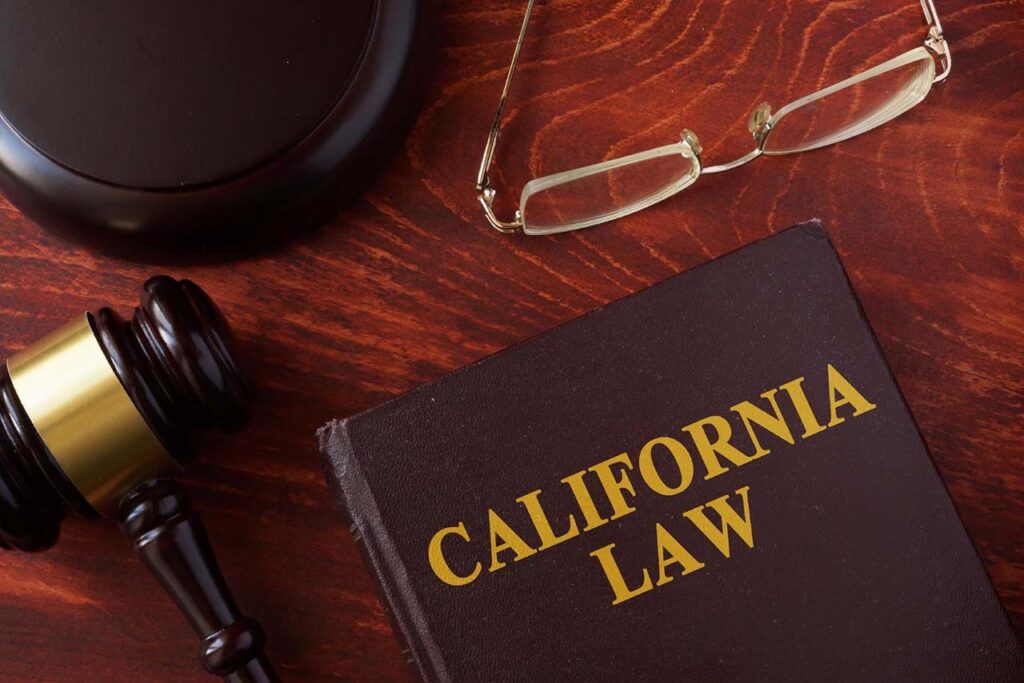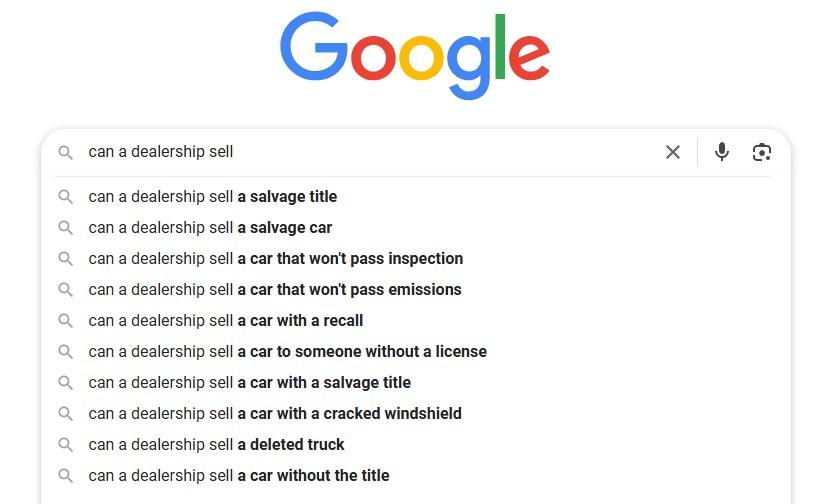
California Dealers Selling Branded Title Vehicles Without Telling You? Here’s What You Must Know
“They Never Told Me the Car Had a Branded Title”
A California consumer thought she had found the perfect used SUV at a dealership in Bakersfield. It was a great price, low mileage, and the dealer described it as a “clean car with minor cosmetic repairs.” But after reviewing her car’s documents at home, she saw a phrase she hadn’t noticed before: “Branded Title.” A quick online search confirmed her fear—her new SUV had previously been declared a total loss. The dealer never told her.
If this sounds familiar, you’re not alone. In California, too many consumers are sold cars with branded titles—including salvage, flood, lemon law, or junk history—without full disclosure. These vehicles are legally required to carry written warnings, but some dealers try to hide the facts.
This article explains everything you need to know about branded title vehicles, why they’re risky, how California law protects you, and what you can do if you were sold one without knowing.
What Is a Branded Title Vehicle?
A branded title is a permanent designation on a vehicle’s title that alerts future buyers that the car has experienced significant damage or issues. Common types of title brands in California include:
- Salvage: The vehicle was declared a total loss due to accident, fire, or theft.
- Flood: The car sustained water damage and may have electrical or corrosion problems.
- Lemon Law Buyback: The vehicle was returned under California’s Lemon Law.
- Junk or Dismantled: The vehicle was considered non-repairable and sold for parts.
These brands are intended to provide transparency to consumers. Once a title is branded, the designation stays with the car for life—even if it’s repaired and returned to the road.
How Do Vehicles Get Branded Titles?
Branded titles result from serious incidents in a vehicle’s history. For example:
- If a car is in a severe accident and the insurance company determines the cost to repair exceeds the car’s value, the title is branded as salvage.
- If a car is submerged in floodwaters—common in storms or hurricanes—it may receive a flood title.
- If a car is bought back by a manufacturer under the Lemon Law, the title will be marked lemon law buyback.
In each case, the vehicle has suffered substantial damage, and the brand helps warn future buyers. This process is designed to protect the public—but it only works if dealers comply with disclosure laws.
How the California DMV Treats Branded Title Vehicles
The California DMV strictly regulates branded titles. Once a brand is added, it is permanently displayed on the title and registration. This includes both physical titles and electronic title records. Brands such as “salvage,” “lemon law buyback,” or “flood damage” are not removable.
In addition to title branding, the DMV may require extra inspections for vehicles being re-registered—especially salvage and revived vehicles. For example, a salvage vehicle must pass a revived salvage inspection before it can be issued a new registration.
Despite these requirements, dishonest dealers sometimes fail to show the branded title during the sale or skip disclosure altogether. If a consumer never sees the branded document, they may have no idea what they’re buying.
What Are the Risks of Buying a Branded Title Vehicle?
Branded title vehicles are often sold for less money, but the savings come with serious trade-offs. These cars may have been poorly repaired or had only cosmetic fixes. The risk of future mechanical failure is much higher than with clean-title vehicles.
Here are common problems reported by buyers of branded title cars:
- Electrical issues that cause dashboard malfunctions or lighting failures
- Unreliable engine or transmission performance
- Structural weaknesses from frame damage
- Persistent leaks or mold (especially in flood-damaged cars)
These problems might not show up on a short test drive—but they often appear within weeks of ownership.

Safety Risks of Branded Title Vehicles
Safety should be a top concern. Vehicles involved in major accidents or floods often have compromised airbag systems, damaged crumple zones, or weakened suspension components. In some cases, airbags may not deploy during a crash due to faulty sensors or improper repairs.
Many branded vehicles are repaired on a budget. That means aftermarket parts, patch jobs, and skipped safety checks. Just because a car looks good on the outside doesn’t mean it’s safe.
A branded title is often a red flag that the car’s safety systems may no longer function as designed. That’s why disclosure is not just a legal requirement—it’s a moral one.
Why Branded Title Vehicles Are Often Overpriced
Legally, a branded title car should be valued much lower than its clean-title counterpart—typically 20–50% less. But some dealers ignore this rule. They fix the car cosmetically, clean up the history report, and sell it at or near market price.
Buyers who don’t know what “branded title” means may assume they’re getting a good deal. But once they realize the car’s history—or try to resell it—they find out the truth.
Overpricing a branded vehicle is not only deceptive, it’s financially harmful. If you overpay for a car that should’ve been deeply discounted, you’re entitled to compensation.
Why Branded Title Cars Are Hard to Resell
Branded title vehicles lose value fast and are tough to sell. Many dealerships won’t accept them as trade-ins. Private buyers shy away when they see “salvage” or “lemon law buyback” on a Carfax report. And insurance companies may offer only limited coverage.
Even if your branded title vehicle runs well, the stigma attached to the brand makes it difficult to move. That’s why most experts recommend avoiding branded title cars unless you’re fully informed and paying a deeply discounted price.
What California Law Requires Dealers to Do
California Vehicle Code clearly states that dealers must disclose any branded title in writing to the buyer before the sale. This includes titles branded as:
- Salvage
- Lemon law buyback
- Flood
- Junk
- Any other designation from the DMV
Dealers must present the actual title document or a written disclosure form. Verbal disclosures are not enough. The buyer must be informed before they sign the contract.
Failure to disclose a branded title is considered auto fraud and may result in legal action against the dealer.

What Are Your Rights If You Bought a Branded Title Vehicle Without Knowing?
If a dealer sold you a branded title vehicle without telling you in writing, you may be entitled to:
- Cancel the contract and return the car (rescission)
- Get your money back or receive compensation for lost value
- Recover legal fees if you win your case
- Sue for fraud or deceptive practices under state law
California has strong consumer protection laws that favor buyers in these situations. But timing matters. The sooner you act, the better your chances of getting justice and a fair outcome.
What Laws Protect California Buyers From Undisclosed Branded Titles?
Several California laws are specifically designed to protect consumers from deceptive practices related to branded titles:
- California Vehicle Code prohibits any misrepresentation of a vehicle’s condition or history, including failure to disclose title branding.
- Consumer Legal Remedies Act (CLRA) allows consumers to take legal action against businesses that engage in unfair or deceptive practices.
- California Business and Professions Code defines and prohibits fraudulent, unfair, or unlawful business acts.
These laws are enforceable in court and offer powerful remedies for victims, including the potential for compensation and punitive damages in extreme cases of dealer fraud.
What Legal Remedies Are Available in California?
If a California dealer sells you a branded title vehicle without proper disclosure, you may have the right to:
- Rescind the purchase agreement and return the vehicle
- Get a full refund or financial compensation for reduced value
- Recover damages for repairs, loss of use, or safety concerns
- Receive attorney’s fees and court costs if successful in a lawsuit
In cases of willful fraud, courts may also award punitive damages to punish the dealer and deter future misconduct. Many auto fraud attorneys in California accept these cases on a contingency basis, so you pay nothing unless they win.
Why So Many People Are Searching for Help Online
Search engines are filled with questions like “what is a branded title?” or “can a dealer sell a salvage car?” — this is a sign of how common this issue is. Many buyers don’t even realize their vehicle has a branded title until it’s time to insure it, resell it, or fix major hidden issues.
This trend reveals a systemic problem in the used car industry, where unethical dealerships take advantage of consumers’ trust. By reading articles like this, you’re already taking an important step toward protecting yourself and spreading awareness.

We Help Victims of Branded Title Auto Fraud
At our firm, the Law Office of Paul Mankin, we focus on helping California consumers who have been misled into purchasing vehicles with undisclosed branded titles. We’ve seen the financial and emotional toll this takes. You deserve honesty and fairness when buying a vehicle.
If you’ve experienced this, don’t hesitate to call us at 800-219-3577. We offer a free consultation to evaluate whether you have a case and do not charge upfront attorney fees. Our attorneys work on a contingency basis, meaning you don’t pay unless we win. Our experienced attorneys are committed to holding dishonest dealers accountable and helping you pursue justice.
How to Avoid Branded Title Scams in the Future
Before you buy a used car in California, follow these steps to avoid branded title fraud:
- Always ask to see the title—and check for any brands or labels
- Run a Carfax or AutoCheck report for accident, salvage, and ownership history
- Ask in writing if the car has ever been branded, salvaged, or repurchased
- Inspect the vehicle with a trusted mechanic, especially if it’s priced well below market value
If anything seems off, walk away. The cost of a rushed decision can far outweigh the savings.
Conclusion: You Have Rights—And We Can Help
uying a car should never feel like a trap. If you were sold a branded title vehicle in California and the dealer didn’t tell you in writing, you may be the victim of auto fraud. The law is on your side, and there are legal paths to correct this wrong.
You may be entitled to cancel the deal, get your money back, and hold the dealer accountable. Don’t wait—contact an experienced auto fraud attorney today to protect your rights and secure the compensation you deserve.
Latest Posts
Common Red Flags of Dealer Auto Fraud When Buying a Used Car in California
Buying a used car can be exciting—but it can also be risky if you’re not aware of the common warning signs to watch out for. Unfortunately, some car...
California Dealers Selling Branded Title Vehicles Without Telling You? Here’s What You Must Know
"They Never Told Me the Car Had a Branded Title" A California consumer thought she had found the perfect used SUV at a dealership in Bakersfield. It was...
